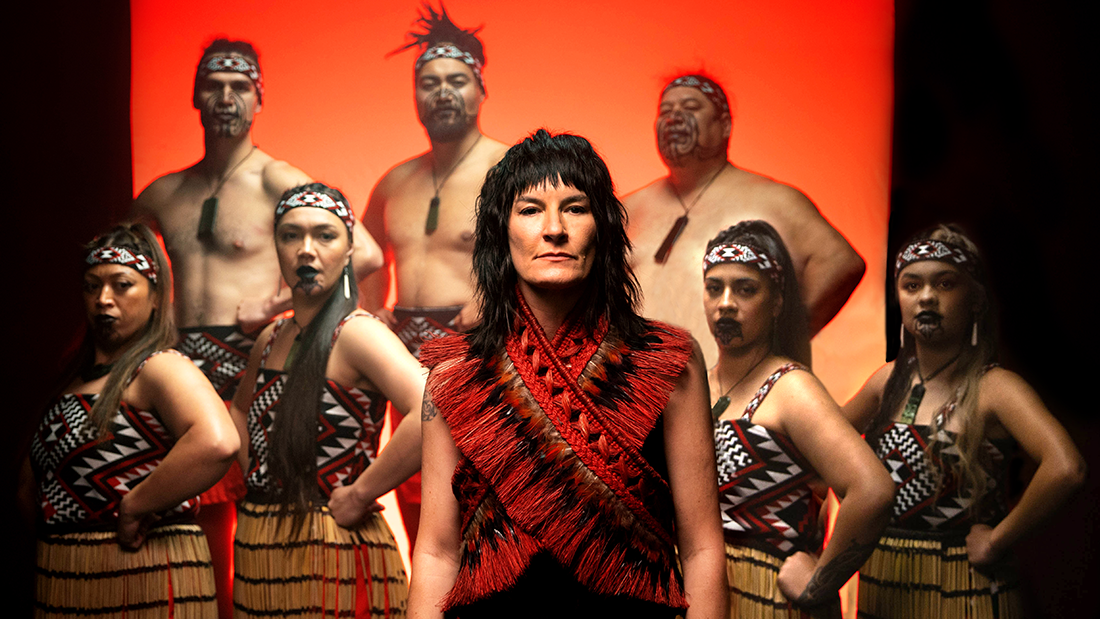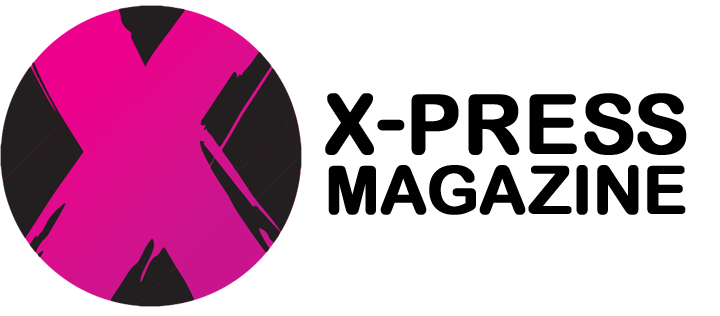
Jen Cloher draws from power of Maori heritage on new record ‘I Am the River, the River is Me’
On Jen Cloher’s latest album I Am the River, the River is Me, the folk-rocker embraces both the strength and vulnerability in their sexual identity and Maori heritage. With a focus on connection through culture and nature, the depth and humility that is intrinsic to Cloher’s being is displayed in their authentic approach to storytelling through music. KYRA SHENNAN spoke to Jen Cloher, who had just been swimming on an uncharacteristically warm morning in Melbourne/Naarm, to find out how their calm demeanour is balanced with a fervour for justice.
Reflecting on the new album upon its release, Jen Cloher shares how their musical heritage has helped them connect deeper with Maori culture.
“I was born in Melbourne, raised in Adelaide, so I’ve grown up here but both of my parents are from New Zealand and on my mothers side there’s the matrilineal connection,” Cloher said. “It feels pretty special to come from a line of really powerful women. So yeah, music was always a part of growing up.”
Jen Cloher was set on the musical path from a young age through their parents. “My parents were both really musical, loved music. My dad played piano and sang, my mum listened to a lot of soul divas like Sarah Vaughn, Aretha Franklin, and Billie Holiday, so I was always surrounded by music. But it wasn’t until later in my life where I’ve been able to make that connection between my Maori heritage and music.”
“The interesting thing about it is that I’m coming from an indie-folk, indie-rock perspective but also inviting what would be considered traditional performing Maori arts into the collaboration and the recording, and the performance, because I’ll be touring with a six piece Kapa Haka which is a Maori performing arts group.”
Jen explains that Kapa Haka incorporates a range of dance and performance including Poi (female traditional dance) and Haka (traditionally performed by males only, now women and men perform it.)
Jen is evidently passionate about healthy expression of emotions, a trait that is shown through their music and personhood. “We don’t get to see, in the modern world, that kind of expression, that contained dignified warrior energy. We put a lid on anything that’s too big. Those young kids that do the Haka have an outlet for big feelings that we’re not really afforded in the modern world, we have to kind of repress and endure. That is something really beautiful about Maori culture, and indigenous cultures around the world, is that there’s a place for grieving.”
When asked to divulge into the sense of impatience for society that comes through in their album, Jen has a lot to say.
“For me there’s a sort of sadness with the structures that hold our lives, the legal structures, the systems… and we say it’s a bit rote now, you know, capitalism, patriarchy, but in the colony we live in it’s real. And no one benefits, not even men. It constrains all of us from realising our full potential. So with this record, I think just being a human being is political. We pay taxes, we vote, our bodies are politicised, our bodies are part of the politic. So I’ve never really seen those things as seperate.”
“Perhaps a lot of artists don’t want to go down that path because they feel like they don’t know enough, or they might be called out, but I feel like, you know, one of my idols, Nina Simone, said a great thing which was ‘an artist’s responsibility is to reflect the times they live in.’ And I really love that, because you can come at it from many different angles, and the times we live in, they’re difficult times because we’re really seeing the result of colonisation, capitalism, climate crisis and how those things are affecting our health and wellbeing, our prosperity.”
“So yeah, I’m really interested in having those conversations and with this record, tying it back in to our connection to land, water and sky. How important it is, how we know it’s important, but we’re not really given the time because we’re just trying to get by, we’re trying to survive in a world that doesn’t want us to slow down and connect with what’s right here.”
Jen Cloher has a run of tour dates across Australian and Europe for the new album, and reflected on what they’re most excited about in bringing the new music to the stage.
“What’s really exciting about this tour is for our capital city shows in Perth, Brisbane, Melbourne and Sydney, I’ll be bringing a Kapa Haka with us on the road. When you’re in a room and it’s happening right there in front of you, if you’ve never seen it or had that experience, it changes you.”
“I see people go ‘Whoa, this is really incredible what these people are tapping into in their performance.’ So to have them with me on stage, they sing across a lot of the songs, beautiful, beautiful harmonies. That’s pretty amazing, I’m touring with twelve people in my touring party, which is pretty mega!”
“To have that kind of representation on stage is pretty cool but I think more than anything, for the capital city shows, and in some of the regional areas, it’s a great opportunity for me to receive that feedback, because you get some good reviews and a few people might post it up and say how much they’re loving the record, you might get a few emails from fans, but beyond that, it’s not really until you hit the stage and you can see people singing along and having a physical, emotional response, that I think is really important for me as a performer I go: ‘Ah okay I can really see how this record is hitting people, literally, in this live performance.'”
Cloher has earned their stripes from their long service in the music industry and has collaborated with a range of incredible artists including Courtney Barnett and Tim Rogers.
“I’ve worked with so many people over the last twenty years or so, it was really fun seeing Milk Records come to fruition, Courtney’s label that I co-founded with her over ten years ago now, and that community of artists, a lot of them we’re friends, we built a really special kind of scene here in Melbourne, toured around, played a lot of shows.”
“So I think that was a really rich, collaborative time because I was working with so many different artists and helping them release their records. So I can’t really think of specific people where I’m like ‘that was an incredible collaborative process,’ but it’s always been a big part of my creative life. I’ve always toured with other artists and co-headlined, I mean just being in a band is a collaborative process and recording things together, that’s why I love music, because of that.”
Whilst all the songs on the album have special meaning for Cloher, there is one in particular that really resonates.
“I get a lot of joy from hearing and performing Mana Takatāpui. That was the first single we released from the album and that’s accompanied with a really fantastic clip. Takatapui is the Maori word for LGBTQI+, or queer. And Mana is your personal power, your ancestral strength, like, what makes you, you. And so, Mana Takatapui is really kind of about restoring strength and dignity to our LGBTQI community.”
“But I think it’s a really fun song to play live, it’s a real ‘ear worm.’ Lots of people have sent me videos of their kids singing or dancing, I think that’s always a really good sign, ’cause they’re unfiltered, you know, they’re not going – ‘Is this good? Is this bad? Is this cool? Is this uncool?’ They’re just like – ‘Do I want to move? Do I want to sing?’ And I really see that song connect with kids, and that’s when I know I’ve written something good!”
“It’s the best criticism! On a whole lot of different levels, I think culturally it’s meaningful, it’s quite a personal song, talking about my own life. I love the video clip, its full of iconic Takatāpui people, yeah I think that’s the one for me.”
